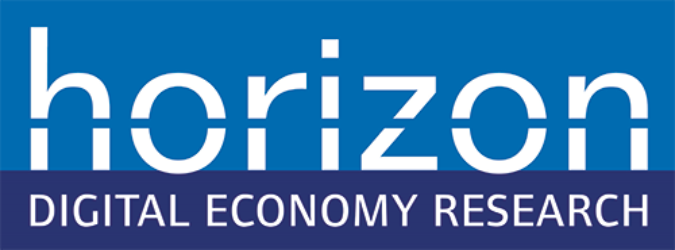
Horizon’s ‘Gendered Exclusion and Wellbeing on the Internet’ (Gendernet) project commenced on the 25th of September with a kick off meeting to introduce the project plan, aims and deliverables. The project runs for 6 months and is part of the wider Welfare Campaign which aims to establish technology, methodologies and toolkits that actively promote personalised digital health and a consumer welfare agenda.
Gendernet aims to explore the various efforts of gendered exclusion in the digital public space and is a multidisciplinary project combining Law, HCI and Computer Science. Work will consist of both quantitative and qualitative methods to identify the paths and strategies of such attempts, the impact on women’s wellbeing and online behaviour and guidelines to address the phenomenon.
The multidisciplinary team is led by Horizon Research Fellow Anna-Maria Piskopani, a legal scholar working on human rights issues in digital ecosystems. Joining Anna-Maria are Liz Dowthwaite, Senior Research Fellow with expertise grounded in psychology and human factors. Nicholas Gervassis, an Assistant Professor in Law with an interest and expertise in the meeting of law and information technologies. Richard Hyde, Professor of Law, Regulation and Governance, Professor Boriana Koleva (Horizon Director), Aislinn Bergin, Transitional Assistant Professor and Dominic Price, Research Fellow & Cobot Maker Space Lab Manager make up the final members of the project team. During this project, we will be working with the Virtual & Immersive Production Studio based at the University of Nottingham and AlbinoMosquito Productions, an interactive and adaptive media company led by Richard Ramchurn.
Why are we doing this work?
The increase of misogynistic, sexist and hostile anti-gendered online speech poses the question of whether and how the participation of individuals in the digital online space has been also affected. If so, an additional question is how these restraints have influenced their wellbeing. Participating in online spaces has been associated with participation in democratic discourse as well as “human flourishing”, deliberation, constructing social identities and communities. Existing declarations of digital rights and new internet regulation seem to be ineffective to confront this online contemporary challenge. Policy and regulatory recommendations are needed as well as additional measures such as training about technical tools to minimise the exposure to such content and raising public discussions about the role that online platforms, politicians, media, educators and police should play to confront the phenomenon.
What are our Objectives
We aim to specify online behaviours and gender exclusion practices (which online spaces, what initiates, by who and how) and the impact on individuals (fear, silence, exclusion, alternative spaces). Additionally, we will search new ways to address the phenomenon working with different sectors such as creative industries. Finally, we aim to highlight these issues to public policy makers, industry, media, educators, and the police and in collaboration with them identify challenges and propose solutions.
Partners
Our first activity will involve sourcing and engaging stakeholders with an interest in this topic to partner with us. We are keen to engage with social enterprises, social media platforms, civil organisations, women’s and victims’ organisations, industry, educators, police to join us in open discussions around this topic and help further shape project activity.
If you are interested in getting involved, please contact Anna Maria Piskopani.




